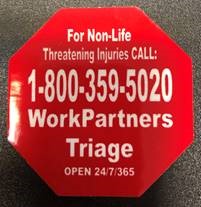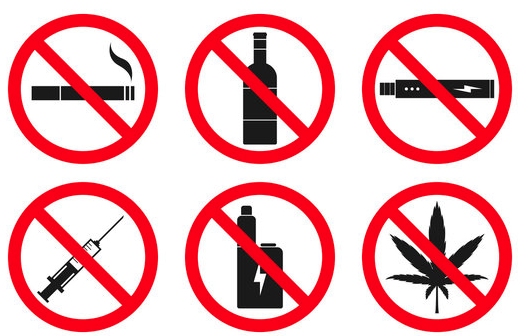Marijuana at Work: What you need to know
Legalization of marijuana – whether for medical or recreational use – is rolling out across the country. It’s having an enormous impact on employers, who now have to ask:
- How is marijuana use impacting safety on the job?
- Can an employee file a discrimination lawsuit if medical marijuana use doesn’t align with our organization’s drug policy?
- How is legalized marijuana affecting the bottom line?
- What does a defensible drug policy look like today?
How Does Marijuana Use Impact Job Safety?
THC in marijuana affects depth perception, reaction time, coordination and other motor skills, and it creates sensory distortion. For someone operating machinery, driving a forklift or delivering products in a vehicle, these effects can be deadly.
According to a study reported by the National Institute on Drug Abuse, employees who tested positive for marijuana had 55% more industrial accidents, 85% more injuries and 75% greater absenteeism compared to those who tested negative. Also impacting the bottom line are:
- Decreased productivity
- Increased worker compensation and unemployment compensation claims
- High turnover
- Lawsuits
Finding a Sober Workforce
Employers in safety-sensitive industries are more likely to have zero-tolerance policies when it comes to marijuana use, and new state marijuana laws are making it more difficult to find workers that meet strict drug-testing criteria, according to the Society for Human Resources Management. One construction company in Colorado has had to look out of state to find drug-free workers.
Marijuana is the most frequently used illicit drug of abuse in the United States and the drug most often detected in workplace drug testing. In 2016, about one in five (7.2 million) Americans ages 18 to 25 self-identified as current users of marijuana, and about 15.2 million adults (7.2%) ages 26 and older used marijuana, according to the National Survey on Drug Use and Health.
A solid workplace drug policy can go a long way to keeping your organization drug-free.
What makes a good drug policy?
Studies show drug testing works; employees are three times less likely to produce a positive test result if they know they will be tested. An expanded testing panel that also includes the most commonly misused prescription drugs may better protect your workforce. An employer policy also should include:
- Proper management training to make managers more likely to enforce the policy
- Access to support for employees with drug problems, which can range from a formal assistance program to a referral to local resources
- Clearly defined use and possession parameters for employees
- Established rules for post-accident testing
- Rules on how you will handle an employee’s conviction or arrest
A drug policy must be very specific and supported by workplace procedures to reduce the chance of litigation. Drug policy and workplace procedures should be reviewed by a lawyer to ensure they comply with state laws. And, policy must be updated frequently to keep up with changing laws and attitudes. The health and safety of your workforce depends on it.
What are the Rules at the Berg Group:
1.Alcohol and illegal drugs are strictly prohibited on the jobsite.
2.The use or taking of illegal drugs and alcohol or being under the influence of alcohol or illegal drugs while at the workplace, including breaks, or on Company property, or while operating the Company’s vehicles, machinery, or equipment, is prohibited. Any employee who reports to work under the influence of alcohol or illegal drugs, or any employee who uses alcohol or illegal drugs while at work will not be allowed to remain on the Employer’s premises.
3.The distribution or sale of illegal drugs including making arrangements during working time or on Company property for the sale, purchase, or transfer of illegal drugs is strictly prohibited.
4.Mental or Physical impairment: Any employee, whose abilities ore negatively impaired, during work hours will be removed from the worksite regardless of the cause of impairment. If the cause is found to relate to the abuse of legal drugs, illegal drugs or alcohol, the employee will be subject to the Company’s disciplinary policy.
5.The Company reserves the right to inspect our vehicles, premises and property; including offices, desks, lockers and other repositories and personal items; such as lunch boxes/bags, purses, gym bags, backpacks, handbags, packages or coats, where there is reasonable cause to believe that on employee has violated this Drug and Alcohol Policy.
A. Reasonable Suspicion: The Company may require on employee to undergo drug and alcohol testing, if the Company has reason to believe that any of the following condition shove occurred:
1.The employee is under the influence of illegal drugs or alcohol.
2.The employee has violated this drug and alcohol policy prohibiting the use, possession, sale or transfer of drugs or alcohol while the employee is working, whether on or off the Company’s premises, or while the employee is operating the Company’s vehicles, machinery or equipment.
3.The employee has sustained a personal injury or caused another employee to sustain personal injury.
4.The employee has caused a work-related accident or was operating or helping to operate machinery, equipment or vehicles involved in a work-related accident.
B. Post-Accident Testing: A drug and/or alcohol test will be conducted on all employees involved in accidents; excluding first-aid core, occurring during work hours or on the Company’s property. Covered accidents include, but are not limited to, accidents that the employee caused or contributed to that involves; (I) personal injury to employees or others, which necessities medical attention; (2) results in lost work time; and/or damage to the Company’s property.
**For more detailed information on The Berg Group Drug and Alcohol policy please refer to the Drug and Alcohol policy below or email HR@berggroup.us

